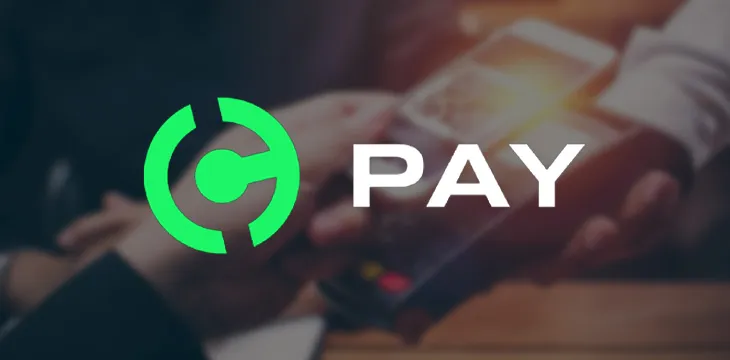|
Getting your Trinity Audio player ready...
|
HandCash’s latest launch, HandCash Pay, improves the payment process for businesses and consumers and significantly reduces the amount of time and money associated with payment settlement.
HandCash Pay is an API that lets users easily create payment links and QR codes for payments that can be displayed or shared anywhere. The introduction of HandCash Pay makes the payment process more efficient for businesses and consumers and allows entities with goods and services to explore new revenue streams and monetization methods.
“HandCash Pay makes it easier than ever before for companies and independent developers to quickly create payment links and QR code payments they can share or display anywhere,” said Alex Agut, the CEO of HandCash.
“Businesses can finally accept instant micropayments with no base fees and with no risks of chargebacks, for the first time in online payments history. We think what HandCash brings to the table is the biggest breakthrough in online payments since PayPal. It is truly next-generation stuff,” he added.
Improving the payment system
Businesses will benefit from the absence of chargebacks, transaction costs that are lower than what traditional service providers offer, instantaneous settlement, the peer-to-peer nature of transactions, and the ability to present payment links and QR codes to customers with finalized payment details; while customers will save significant amounts of time by being able to make payments at just the tap of a button once they open/scan the link/QR code.
“HandCash Pay doesn’t require businesses to charge the typically 2% fee that limits what you can build by using credit cards or the $0.30 base fee on every single payment that makes small payments inviable. We have gotten getting rid of that,” Agut revealed.
HandCash Pay is currently up and running with BSV, but USDC-based payments will be launching on the platform and will be the main focus once they arrive.
“Although the final launch of USDC on HandCash is still a few weeks away, this new payment system aims to become a hub for online USDC payments. Which means that by adding HandCash Pay to your site, app, game, slot machine, or kiosk, you will be ready to accept USDC payments coming from any compatible blockchain,” said the HandCash team in its official announcement of HandCash Pay.
USDC on HandCash paves the way for interoperability with any blockchain protocol that supports USDC. This means that the world’s most popular and populated wallets, such as Coinbase’s (NASDAQ: COIN) and the Solana native Phantom Wallet, will be able to receive and pay USDC invoices that merchants create with HandCash Pay. The addition of USDC on HandCash Pay tears down a few of the walled gardens that exist in the digital asset world and gives both businesses and consumers a common denominator for payments.
Agut and the HandCash team envision HandCash Pay being used in a variety of ways, such as in point-of-sale systems and online payment processors, to name just a few, especially once they add a feature that allows consumers and businesses to enter a shipping address so that they can receive physical goods that they have paid for by way of payment link or QR code. But until that feature is online, HandCash sees outdated business models that don’t monetize very well, like subscriptions, being low-hanging fruit that HandCash Pay can revolutionize.
“Subscriptions don’t monetize that well anymore and both businesses and users have been craving for an alternative. HandCash Pay is the alternative. Businesses can attach digital content to payment links and QR codes that consumers will receive access to once they complete payment. Users can purchase individualized premium content instead of having to sign up for yet another subscription. And beyond that, it’s perfect for monetizing visitors to your website, for in-person payments, or for selling any item on social media,” Agut said.
“I can see companies adding pay-to-read or pay-to-watch business models, replacing annoying ads and subscriptions. I can see companies adding Haste’s Instant Leaderboard Payouts into physical arcade machines or even at go-kart tracks. Content creators and mentors can sell their ebooks directly without having to pay 20-30% in fees. This also removes the need for something like Patreon to exist in the future,” he added.
With HandCash Pay, there are numerous opportunities to transform monolithic processes attached to payments into better experiences for businesses and consumers. Agut says he sees HandCash Pay becoming a widespread tool with a wide variety of plugins on all major platforms similar to Zapier and WordPress.
“We’re all about streaming money and with HandCash Pay along with USDC, companies and independent developers worldwide can quickly integrate instant payments without suffering high fees and fluctuations of cryptocurrencies. By using a common token that’s used in a wide variety of blockchains, companies using HandCash Pay don’t lock themselves with one particular blockchain and token. Entrepreneurs won’t have to pay that price anymore,” he pointed out.
If you’re interested in integrating HandCash Pay or want to learn more, you can head over to handcash.io/developers/pay and sign up on the Developer Dashboard to get started. You can also contact [email protected] to schedule a demo. The HandCash team offers a free consultation to help companies discover creative ways of adding new revenue streams, so do not hesitate to reach out!
Watch: The BSV Global Blockchain Convention panel, Better Payments with BSV

 07-08-2025
07-08-2025 





